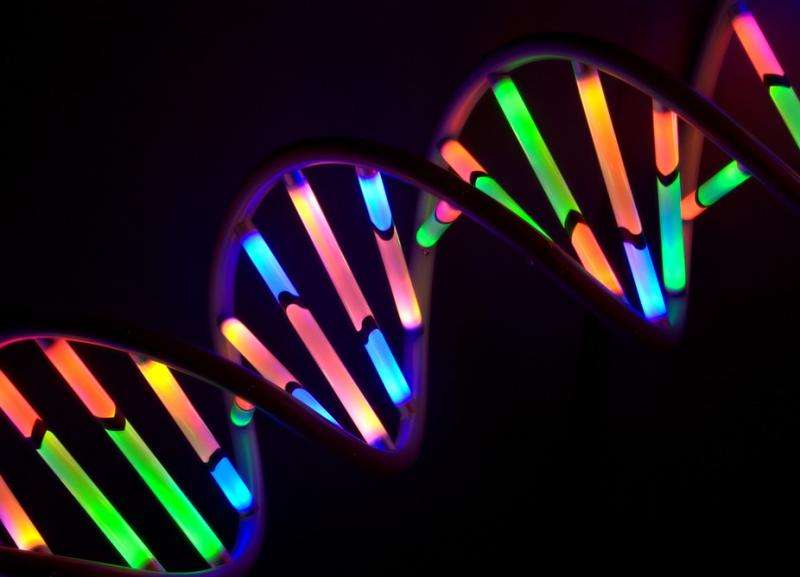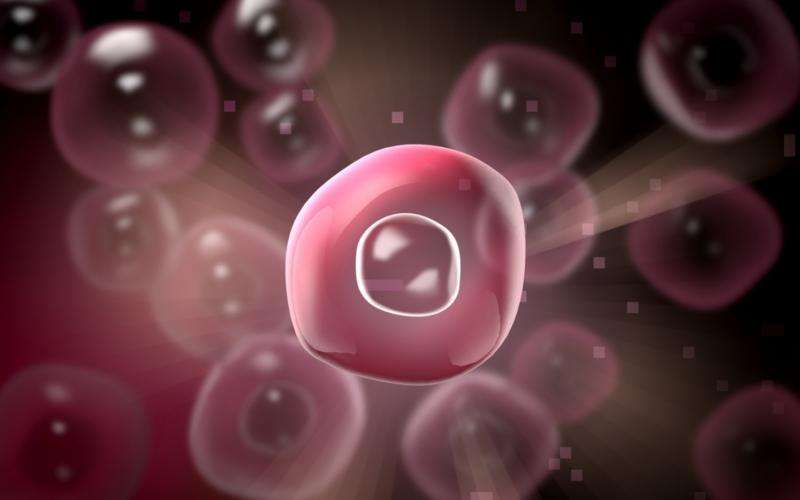Sci-fi still influences how society thinks about genes—it's time we caught up

We used to think that our fate was in the stars. Now we know in large measure, our fate is in our genes.
When the Nobel laureate and co-discoverer of the DNA double helix James Watson made his famous statement in 1989, he was implying that access to a person's genetic code allows you to predict the outcome of their life.
The troubling implications were not lost on people, of course. A few years later they were explored in the American film Gattaca, which depicted a civilisation from the near future that had embraced this kind of genetic determinism. It was a world in which most people are conceived in test tubes, and taken to term only if they passed genetic tests designed to prevent them from inheriting imperfections ranging from baldness to serious genetic diseases.
With these so-called "valids" – the dominant majority – the film was a warning about the dangers in our technological advancement. As it turns out, we were probably being optimistic about the potential of genetics. Yet too few people seem to have got that message, and this kind of mistaken thinking about the links between genes and traits is having unsettling consequences of its own.
What we now know
When Gattaca was released four years before the first human genome sequence was completed in 2001, the technological aspects of the world it presented seemed a long way off. In fact, we are already almost there in the sense that the routine availability of everyone's genetic code is very nearly a reality. But the ability to use this information to make predictions about a person's abilities and personality is still science fiction, and will likely remain so for the foreseeable future.
This is not to deny that most human traits are influenced by our genetic makeup. Many human traits are highly heritable, which means a substantial proportion of their variation across a population is due to genetic variation. But for most traits – intelligence for instance – at least 20%-30% of the variation is non-genetic. Our traits can be affected by socioeconomic background or life experiences, for example, but also by less obvious events such as random fluctuations at the cellular level.
The process of building a human is complex on many levels. The trillions of cells which must organise themselves to build our bodies are themselves reliant on complex genetic processes. Each cell will not perfectly execute its genetic code, which is why identical twins don't look or behave in exactly the same way. It's also why our bodies are not completely symmetrical: the same genetic program is running in all of our cells, but chance events will shape the outcome in each case. This means there will never be a simple relationship between your genetics and your physical characteristics, personality or intelligence. This limits the accuracy of any genetic predictions we might try to make.
There are other limitations. To make meaningful predictions about an individual based on their genetic code, we would have to understand how each of the genetic variants that make them unique contribute to their overall physical and psychological characteristics. And unfortunately our main technique for investigating human genetics relies on studying genetic variation across populations, and it is hard to extrapolate these results to make predictions about individuals.

Worse still, we are finding that each person carries rare or unique genetic variants that have not been looked at in these population studies. This makes it harder to understand what contribution they might make to a given trait. Compounding this issue further is the fact that genetic variants can interact in ways that are hard to predict.
Misunderstood genes
Despite all this, there are hundreds of examples in the popular press that give the impression that there is always a simple relationship between the gene and the trait it influences. While these misinterpretations may be frustrating for a geneticist to read, they sometimes also have real-life impacts.
One of the most notorious examples is MAOA, aka the "warrior gene". It has several variants, some of which are associated with aggression and antisocial behaviour. But the relationship between these variants and a person's behaviour is not simple, and appears to depend on the person having a history of being abused as a child.
Having one of these variants doesn't guarantee you will be aggressive: about one third of northern European men carry one such variant, and not all studies report an association with aggression. Nevertheless, this warrior gene has been used as a factor in multiple murder trials. In each case the defence has claimed that it predisposed the defendant to violence. In two of the cases the sentences were reduced as a result.
Genetics is also entering the political arena. In 2013 the then education secretary Michael Gove's outgoing advisor Dominic Cummings wrote that the government needs to take genetics into account when formulating education policy. His view, that an individual child's performance is mainly based on genetics, is another example of misapplying population-level studies to predicting individual performance.
This puts us in the strange situation of genetics affecting society in ways which are not supported by our current understanding of the science. Given we are fast approaching a time when we will each have access to our genetic code, we all need to get a clear understanding of the limits to what our genes can predict. It is otherwise hard to be confident that we will make sensible or rational decisions, either as individuals or as a society.
In Gattaca, the seductive certainty offered by genetic determinism ends up being cleverly undermined when Vincent (Ethan Hawke), one of the few people born outside the pre-selection process, proves more than a match for his genetically perfect peers. The film's ultimate message is that DNA is not destiny – which is precisely what science is now increasingly backing up. This being the case, allowing ourselves to be misled by science fiction is both an unfortunate and strange state of affairs.
This article was originally published on The Conversation. Read the original article.
![]()


















